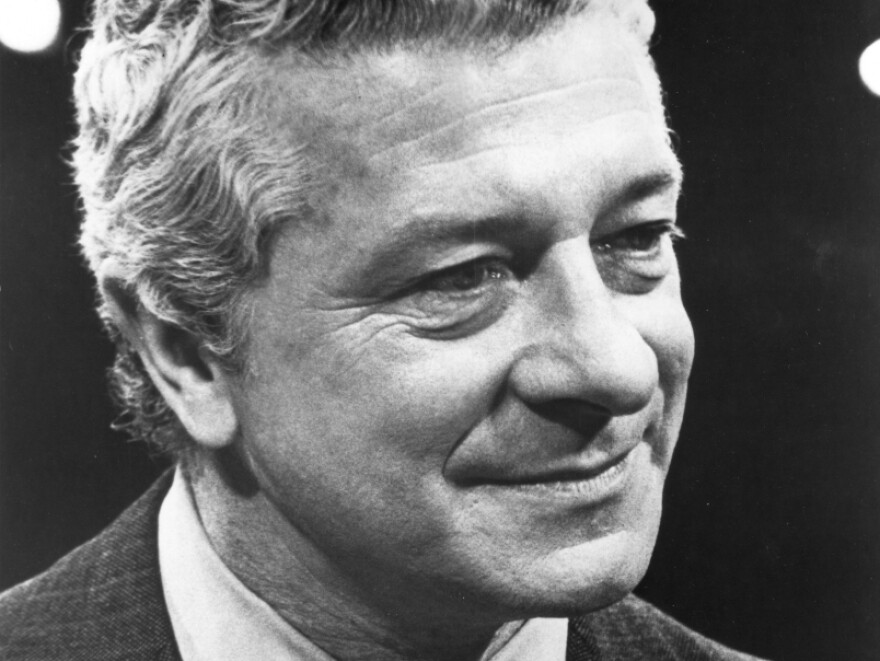The two DVDs I want to talk about today are hilarious, but they aren't sitcoms. They're talk shows — well, one's a talk show, and one's a filmed seminar. But they're both fascinating examples of a specific pop-culture moment frozen in time.
And they're something else as well: Both are highly entertaining real-time examples of talk-show Darwinism. Both shows feature a large, unwieldy guest roster, all of the guests competing for attention at the same time — and by the time the programs are over, the winners are apparent.
The first DVD, from S'more Entertainment, is a 1970 installment of the syndicated David Susskind Show. The topic of this particular program, never before released on home video, was "How to Be a Jewish Son." And the guests fielding questions from Susskind included actor George Segal, who had just come out with the movie Where's Poppa?; writer Dan Greenburg, author of the then-recent best-seller How to Be a Jewish Mother; and Jewish entrepreneurs from the fashion and fast-food industries.
But the breakaway stars, the guests who ended up running away with the show and taking it over almost completely, were David Steinberg and Mel Brooks. Steinberg had just played an unintentional part in the firing of the Smothers Brothers on CBS, and Mel Brooks had mounted the original movie version of The Producers. No matter the topic, these two were hot — and even when one of them was asked a question by Susskind, the other was just as likely to respond. And the responses, in 1970, are almost shockingly candid.
The David Susskind Show was televised for 28 years, and "How to Be a Jewish Son" was its most famous, and most requested, installment. And now it's here.
The other DVD is a more recent conversation, but the guests are talking about shows that are even older. In 1996, the Writers Guild of America West staged a reunion of the writers who had worked with Sid Caesar, either on 1949's Admiral Broadway Revue or his two 1950s TV classics, Your Show of Shows and Caesar's Hour.
There are no clips from those shows on this DVD, which is called Caesar's Writers. What there is, though, is priceless. Unlike an edited version shown years ago on public TV, this is the entire two-hour seminar, in which 10 very smart men sit onstage in folded chairs and tell their stories — while telling jokes at the same time.
And what a panel! Lucille Kallen, who wrote for Your Show of Shows, isn't there. Neither is Woody Allen, who wrote for some of Caesar's TV specials. But my, look who is: Not only Sid Caesar and his writing co-star Carl Reiner, but writers Neil Simon and his brother Danny, Larry Gelbart, good old Mel Brooks again, and others whose names are less familiar, but whose one-liners are just as funny.
And that's what I love most about this freewheeling two-hour discussion. It's comedy at its most democratic, just as in a real TV writers' room. It doesn't matter who offers up the best joke. Funny wins — and all the others are smart enough to know funny when they hear it, and laugh generously when it arrives.
That's the beauty, and the equality, of comedy. No matter who comes up with the joke, funny is funny. And so are How to Be a Jewish Son and Caesar's Writers.
David Bianculli is founder and editor of TVWorthWatching.com. He teaches TV and film history at Rowan University in New Jersey.
Copyright 2021 NPR. To see more, visit https://www.npr.org.


